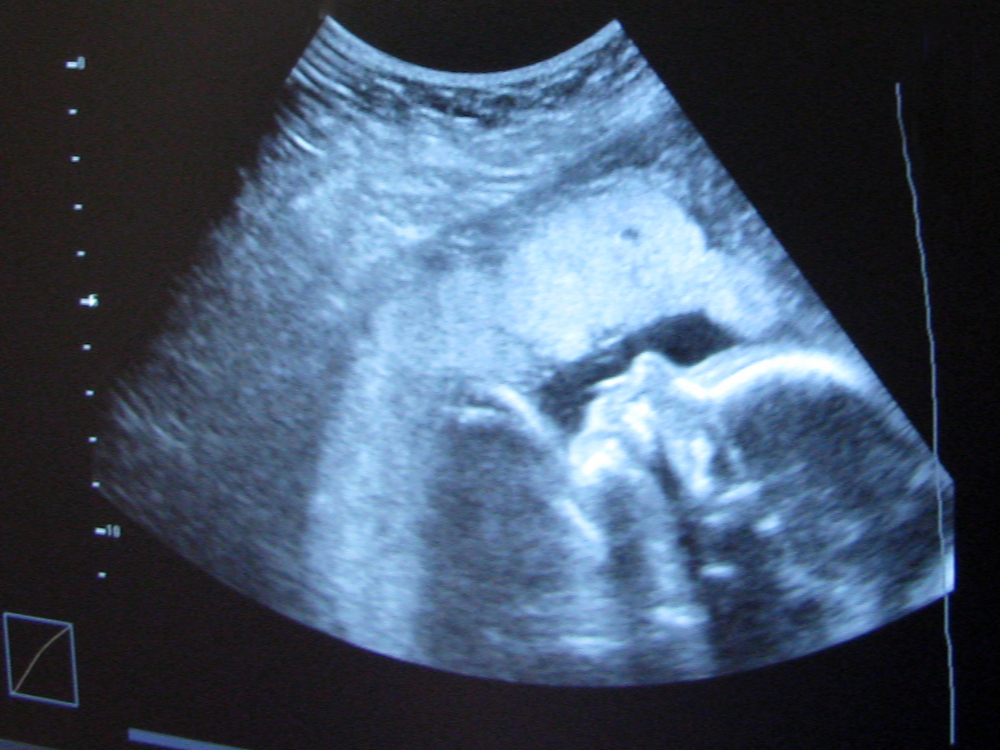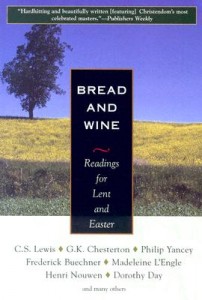
by Ashley Haupt | Jul 29, 2013
Finding ourselves alone on a Thursday night, having dispersed our three children to two sets of happy grandparents, my husband and I decided on a whim to go see a late movie. No little voices would be waking us up that night or early the next morning, so we caught the late showing of The Wolverine.
Yet another in a recent slew of superhero films, The Wolverine is a part of a series based on the X-Men comic books. Ever-popular Hugh Jackman stars as the angsty Logan, who is called to Tokyo to visit a mysterious man from his past. When he arrives, he is immediately drawn into family drama as the patriarch passes away and leaves the lucrative company to his granddaughter. Several forces collide as the Japanese mob, a mysterious band of archers, and an endless supply of henchmen all pursue the innocent granddaughter to seize power of the company. The Wolverine determines to save her from her attackers.
The Good
Jackman’s character, Logan, shows a zeal for justice and an inclination to protect and rescue others. Early in the movie, he saves the life of a soldier who is keeping him captive and refuses any remuneration or gift. His remorse over past violence haunts him and he shuns society for the protection of others as much as for his own preferences.
The movie pursued an intriguing theme of the burden of eternal life on earth, particularly a life with no purpose. While the theme was very promising, it was poorly developed, and abandoned altogether as Wolverine continues his life of restless wandering.
Wolverine’s sidekick throughout the film is a street-tough, redheaded young Japanese woman who was plucked off of the streets as an child orphan to be a part of the wealthy family at the center of the story. Her character reflects the truth that people of all demographics have value, virtue, and a significant part to play in the story of life. She is ridiculed by the haughty, prideful father-figure, but she proves to be the most loyal to the family name in the end.
The Bad
As a character, The Wolverine is meant to be fiery and tempestuous, but his impetuous nature was frustrating. He rarely stopped to think through any scenario or listen to others; he was all brawn and no brain. For me, this made for a less interesting movie. Rather than thinking of clever ways to outwit his enemies, or stopping to think at all, we watch Hugh Jackman barge into scene after scene only to get beaten, sliced, and shot to death over and over again (although he does a fair amount of impaling with his wolf claws). It began to feel like a more violent version of GroundHog’s Day.
As a strong male character, Wolverine has a chance to shine in strength and integrity, but falls flat at being a lover or a fighter. Although he is haunted by his part in the death of his first love, he enters into another relationship with the young Japanese girl he is protecting, exposing her to the dangers of his bestial nature. Real men show self-control, but Hollywood has yet to learn that, and Wolverine reflects it.
The Ugly
The movie contains some use of foul language and an excessive amount of violence. The Wolverine manages to get killed in a ridiculous amount of ways, including being severed in two by a Japanese sword more than once. He is able to sustain all of these injuries due to his mutant quality of rapid healing, but as the shot wounds and sword slices pile up, you begin to wonder if he has any fighting skills at all.
If you miss this film, you’re life will not be incomplete, but if you just want some mindless entertainment and happen to love comic books-turned-movies, go see it.

by Ashley Haupt | Jul 11, 2013
I was sitting at deli with my sister-in-law and our collective six children (three each) dangling around on chairs near us when she asked me, “Do you ever feel like you have to apologize or explain for the number of kids you have?” Both of us are expecting our fourth child at the end of this year, fall for her and winter for me.
“Yes,” I said. “Just yesterday, a waitress asked me the kid’s ages. I told her, Six, four, one and a half, and another on the way in December. But I barely let her congratulate me before saying, “And then we’re done,” as though it begged the question.
My sister-in-law expressed the same feeling, the same habit of apologizing or feeling the need to explain the choice of family size.
It’s tricky, really. When people are interested in your family, they want to ask questions and be involved. And you want them to! But it can get a little awkward.
So, I thought I’d offer five tips for interacting with big families:
1. Don’t ask if the pregnancy was planned. There is no good answer to the question, “Was this one planned?” that is not awkward due to the nature of conception. Also, the question itself contains the slight implication that the person asking considers the timing inopportune for some reason. Even if the child was unplanned, the parents may want to move past that and focus on embracing the blessing and responsibility God has given them.
Do: Congratulate the parents enthusiastically no matter what number of child they are having. Whether or not you think they should be having another child at that time is completely immaterial now that the child is in existence. The parents-to-be need all the encouragement and confidence they can get. As believers in Christ, we trust the Bible when it declares that “Children are a blessing from the Lord.”
2. Don’t comment on a pregnant woman’s body. Trust me, we feel self-conscious enough without people drawing attention to it. It’s the one time in life everyone feels compelled to scan your body for signs of the coming life. Understandable, but also awkward. And no one, absolutely no one wants to be asked if they are carrying twins. Nothing good comes out of this question. If she genuinely is carrying twins, she will tell you. You don’t need to ask.
Do: Just tell her she looks great. It goes a long way.
3. Don’t judge another family based on your own preferences. While I will soon have four children, I can completely understand the family who chooses only to have one or two. I know first-hand that having multiples changes everything about life for you and for the children. I would hope that smaller families would also give similar grace to bigger families, knowing the amount of energy it takes to raise and parent a child. With a gamut of reasons for people to have different numbers of children from infertility to financial to house size to spiritual reasons, really it’s best to choose not to judge either way. Romans 14:4 tells us, “Who are you to judge your fellow servant? To their own master servants stand or fall. And they will stand, for the Lord is able to make them stand.” Each of us answers to God, not man, and those of us having many children should not feel we have to explain to anyone. We are God-pleasers, not man-pleasers.
Do interact with and befriend families of differing sizes. We can benefit from our differences and learn from one another. While it’s nice to be friends with families that understand your exact struggles, it’s also beneficial to get a perspective from someone completely different. You may find habits you want to adopt or unexpected blessings from the variation.
4. Let the parents know if a child is misbehaving outside their presence (children’s church, Sunday School), but don’t engage in unnecessary tattling. We have a sweet elderly lady who occasionally babysits our children. One of our children can be particularly stubborn and we are well-aware of the fact. But every time we go to pick up our kiddos, she just praises them and encourages us. She tells us what has occurred light-heartedly and with many assurances that they all had a good time. We trust her to share what we need to know, but we also know she makes the best of things. And you know what? Sometimes exhausted parents need that.
5.Big families and small families all need grace because parenting is hard, but sometimes big families might need more grace. Already, with three kids six and under, I feel like our family inadvertently puts on a show at restaurants (my husband and I say that we won’t even go out after the fourth is born, but that will probably not last). And, try as we might to contain it and to clean up afterwards, we do make a mess. Honestly, the most gracious thing anyone can do when they see a big family with small children at a restaurant, even if the kids are being loud or active or not particularly well-behaved, is to smile at the parents and say, “You have a lovely family.” It counteracts our sneaking suspicion that we are a menace to society (even if we are sometimes).

by Ashley Haupt | Jun 18, 2013
 It’s pretty vogue these days in the blogging world to write rant-blogs on the unsolicited advice often received by parents of small children. Spew some annoyance in a witty way and everyone cheers via clicks and “likes” and feels vengeful towards the culprits. It’s equally popular to write blog posts about the hardships of parenting, some of which assure you that you are not a bad parent. These posts will circulate quickly and wildly, according to the relief tired parents feel upon reading them.
It’s pretty vogue these days in the blogging world to write rant-blogs on the unsolicited advice often received by parents of small children. Spew some annoyance in a witty way and everyone cheers via clicks and “likes” and feels vengeful towards the culprits. It’s equally popular to write blog posts about the hardships of parenting, some of which assure you that you are not a bad parent. These posts will circulate quickly and wildly, according to the relief tired parents feel upon reading them.
It’s nice that the Internet can provide some solace and camaraderie for exhausted parents who might possibly be worn out from the perceived expectations of a post-Pinterest world. But maybe we shouldn’t be so quick to jump on the rant-wagon. Here are some things to consider:
1. Parenting is hard, period. But no anonymous blogger can assure me I am a good parent. Yes, there is grace (lots of grace) in this parenting process but there should also be difficult, reflective crossroads–times when you have to admit you are being lazy, taking unwise shortcuts, or need to re-evaluate your action plan rather than plowing on heedlessly.
2. Unsolicited advice is annoying, but you never know when God just might use it, if you are willing. God approached Balaam with wisdom through his donkey, of all places. I know of few of us who are going to seek advice when we need a major overhaul of our attitude or approach to some aspect of parenting. That’s the last thing we want to hear. And yet, there are many aspects of parenting (especially when the kids are young) that do not come naturally; we must learn how to parent appropriately. For example, avoiding all toddler tantrums with food and appeasement will turn your sweet tot into a tiny version of the Hulk very quickly when the the world inevitably does not revolve around him or her. Yet this is an easy trap to fall into if you aren’t warned. Early parenting is full of pitfalls like this; nuggets of wisdom you aren’t always going to innately possess. No one likes to be told something they don’t know; we hate that. But those directives could be the realignment we really desperately need.
3. Our nature is to resist correction; the Bible warns us repeatedly to heed correction. Proverbs makes this point almost ad nauseum. Considering Solomon was the resident wisdom-specialist, it seems to be something he didn’t want us to miss. Obviously, we should not take every criticism to heart and let it define us, but we should sift it to see if there is any truth to be gleaned, especially truth we may not want to hear. Often the things we want to hear the least are the items we are deeply afraid of addressing in ourselves, our habits, our character. We are better off to face that fear and assess it, deal with it, consider the changes God would have us make, than to vent our wrath on the speaker of truth.
Next time you get some unsolicited advice, smile and nod. Instead of ranting to your spouse, Facebook, and the blogosphere, take a few moments to pray, sift, and honestly evaluate. You never know who might be the donkey in your path.

by Ashley Haupt | Jun 3, 2013
My husband and I have been struggling to transition our toddler from a crib to his new toddler bed. Every night he wanders out of bed into his dark room, crying, not understanding the change we have made.
As a believer who has struggled with mild depression, I thought how much we are like my poor toddler: crying in the dark, confused about life’s changes, wanting the familiar, not understanding the things that are happening to us. We feel out of control against tornadoes, miscarriages, job losses, economic uncertainty, divorces, abuse, crime, depression, or maybe even just the slow disillusionment of everyday life. We fight and flail and we don’t know why God doesn’t rescue us in the way we want. In the dark recesses of our hearts we ask, Where is God?
What difference does it make to be a believer when you struggle with depression?
It certainly isn’t that God answers right away and delivers us immediately from the pit. Psalm 54:10 says, “Though the mountains be shaken and the hills be removed, yet my unfailing love for you will not be shaken nor my covenant of peace be removed,” says the LORD, who has compassion on you.
In some of life’s trials, we draw closer to God in the pain and find intimacy increased. But in depression, it can feel as though all your mountains are shaken, your hills flattened, and love is failing you.
I do believe His grace shelters us in ways we don’t even see in the midst of the emotional desert. When I sought to pursue gratitude in the midst of depression a couple years ago, I could see ways He was helping me along, although He didn’t deliver me from my pain instantaneously. In the pit of despair, I found myself at the same junction as the disciples in John 6. Jesus was teaching hard things, confusing things, and many people deserted him. When he turned to the disciples and asked, “Will you leave, too?” Peter responded, “Lord, to whom shall we go? You have the words of eternal life?”
I know Jesus is the Messiah, but hard times are before me, He is not explaining himself, things are getting confusing, and will I still believe?
In John 6:29, Jesus says that our work is to believe, however faint is that faith within us, because it is not as much about the enormity of our faith as it is about the enormity of our Savior and the salvation He wrought, completed at the cross.
Sometimes just to believe in the face of our circumstances, including depressed emotions, is work enough. It is finished, whether I am depressed or not, so I do not forfeit my salvation with my crisis of faith, but I acknowledge He is Messiah, and eventually, He restores me so I can praise him.
He knows I am a weak creature, dust of the earth so prone to wander with tiny, mustard-seed faith, but God accepts me on the basis of Christ’s sacrifice and His obedience. This is why even a mustard seed can produce a great harvest and a believer is not lost when he or she encounters depression. We are sealed with the Spirit, and will never be cast out of the joyful, triune God’s presence.
A toddler in a dark room does not feel Mommy and Daddy’s presence, but that doesn’t make them any less real, just outside the door, listening to every little footfall.
Depression can be a stretch of darkness where we wander and cry and it seems God will never come to the door, let the light spill into the room, and speak soothing words over us. Yet we know He is there, just outside, unchanging, ever faithful, keeping his covenant of love to thousands of generations of those who fear him.
And on this promise, maybe we can find a soft place to lay our heads down in the darkness and rest. Because sometimes grace comes eventually, and in the meantime, believing is all we’ve got left.
But in the end, it’s the difference between heaven and hell.
Jesus answered, “The work of God is this: to believe in the one he has sent.”

by Ashley Haupt | May 20, 2013
 I bought a book to observe Lent this year, but I didn’t crack it open during that season. I can’t even tell you exactly why.
I bought a book to observe Lent this year, but I didn’t crack it open during that season. I can’t even tell you exactly why.
But I wept over it Sunday morning. It was a very late Lent for me, and yet very timely after all.
Tired, nauseous, and full of guilt for being so weak and withered in all my roles in this sickly season (we are expecting our fourth child in December), I was looking forward to taking the Lord’s Supper with my church. My pastor (and husband) always makes it so meaningful and rich, and I knew he’d be preaching out of Hebrews.
But I couldn’t make it. After vomiting and crawling miserably to bed the night before, I found myself miserable again on the morning of the Lord’s Day. I dragged myself around to get the kids ready, the communion bread baked, and then I collapsed on the couch in my robe and nausea.
Hungry for Christ, bereft of fellowship, and still guilt-laden, my eye fell on the book, Bread and Wine, readings for Lent and Easter. I fetched it from the shelf, tracked down my journal and a pen, and curled up around my roiling tummy to get some spiritual food.
The book did not disappoint. Immediately, tears began leaking down, as I read the words of repentance that my own heart needed to voice. All the beginning chapters are on repentance, suffering and being crucified with Christ.
I found myself asking God, “Why is this pregnancy so hard? I’ve done this three times before. It should be easy by now. What is wrong with me?”
Gently, He showed me it was my flesh, my self-will struggling against this intense season of sanctification. Yes, I have been pregnant and sick three other times — three other first trimesters of illness and exhaustion. But the fire is hotter now, and my deeper dross emerges with a family of five to care for and life’s responsibilities greater and heavier.
In short, I struggle to surrender my strength, my energy, my caffeine, my comfort, my wellness, and my personal choices for this new life to thrive within me. It costs more now than it did when I was first pregnant with my daughter six years ago. Selfishness doesn’t die easily or quietly or accidentally.
I considered, in light of the words I read, how Christ’s sufferings, so personal and profound and in all ways worse than mine, were done in obedience to His Father, but also to give life. And now He’s called me to similar suffering, to give life.
“The whole life of Christ was a cross. And the more spiritual progress you strive for, the heavier will your crosses become, for as your love for God increases so will the pain of your exile. . . But as long as adversity irks you, as long as you try to avoid suffering, you will be discontent and ill at ease. Realize that to know Christ you must lead a dying life. The more you die to yourself, the more you will live unto God”—Thomas a Kempis, from “Bread and Wine.”
And so I find, mercifully, a return to the cross, and a very late Lent rescued me from myself in this season, reminding me that Christianity is and always was about dying to self, being baptized in the baptism of Christ, and submitting myself to all that God has for me, grace and grief and illness, too. I repent of my self-will and surrender anew.
My wellness hasn’t changed yet, but my spirit has been baptized in understanding. And that makes all the difference.



 It’s pretty vogue these days in the blogging world to write rant-blogs on the unsolicited advice often received by parents of small children. Spew some annoyance in a witty way and everyone cheers via clicks and “likes” and feels vengeful towards the culprits. It’s equally popular to write blog posts about the hardships of parenting, some of which assure you that you are not a bad parent. These posts will circulate quickly and wildly, according to the relief tired parents feel upon reading them.
It’s pretty vogue these days in the blogging world to write rant-blogs on the unsolicited advice often received by parents of small children. Spew some annoyance in a witty way and everyone cheers via clicks and “likes” and feels vengeful towards the culprits. It’s equally popular to write blog posts about the hardships of parenting, some of which assure you that you are not a bad parent. These posts will circulate quickly and wildly, according to the relief tired parents feel upon reading them.

